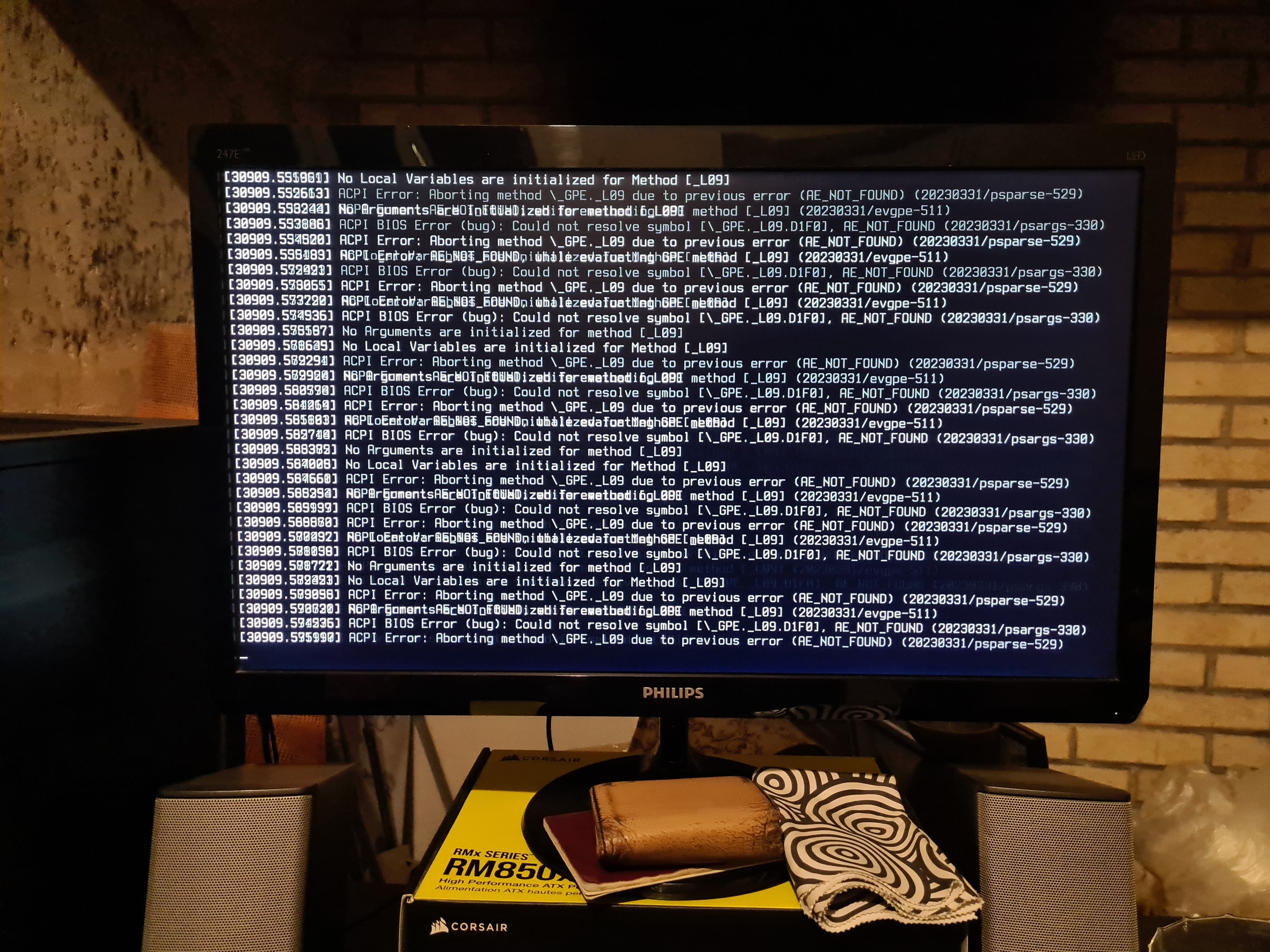I am pretty sure I pissed of some eldritch deity because I have been chasing this laggy feeling I had with my pc for 2 months.
But in the past few days my desktop was getting very slow during installationand general use. At the same time my HDD activity indicator would be on all the time. Turning off the pc would shut it down and a few seconds later restart.
So I switched out Fedora for Pop OS and everything went fine for half a day and the problemen came back again.
When turning off the pc, right now, I got what you see in the picture.
So I would like to ask do I need to hire an exorcist or is hardware borked in someway?
Any help would be greatly appreciatie, so I would like to thank anyone even willing to look at my post.
EDIT: Well for anyone still interested, apparently it was something in the 6.5 series kernals that made my pc behave weird because with 6.6 kernal all of the problems vanished. I want to thank everyone again for all the suggestion and help diagnosing my problem.


